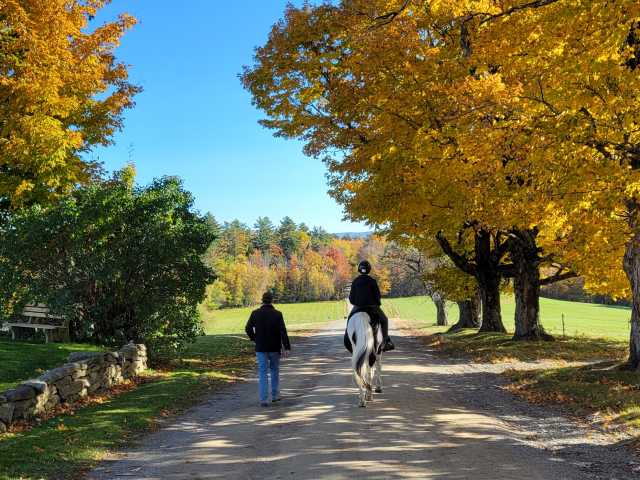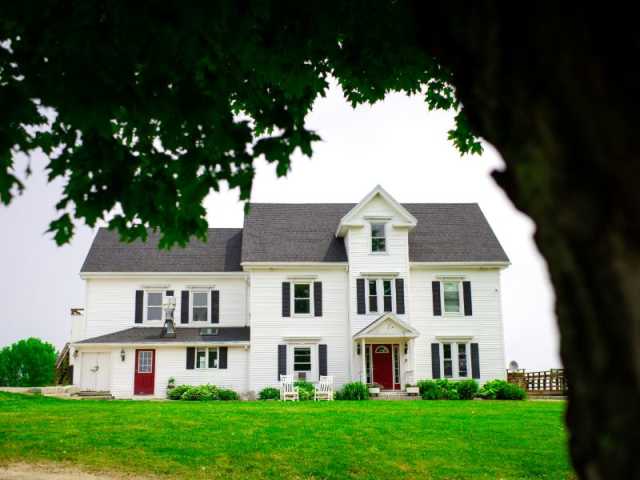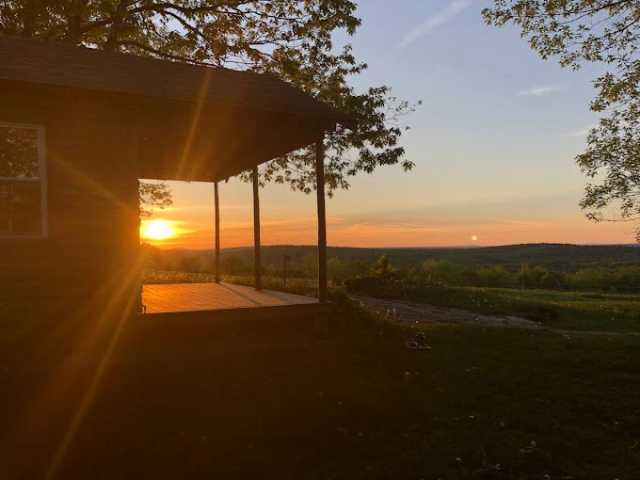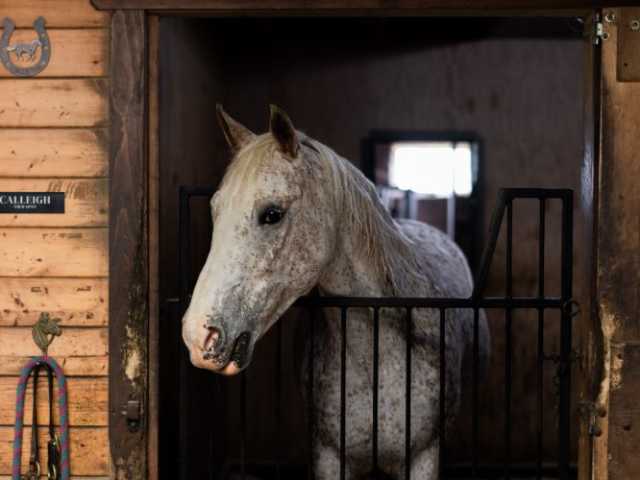
South China, Maine, United States
Ridge RTC for Teens - Maine
Verified
Verified
This provider’s information has been quality-checked by Recovery.com’s Research Team for accuracy and completeness, including center verification through appropriate third-party organizations.
Joint Commission Accredited
The Joint Commission accreditation is a voluntary, objective process that evaluates and accredits healthcare organizations (like treatment centers) based on performance standards designed to improve quality and safety for patients. To be accredited means the treatment center has been found to meet the Commission's standards for quality and safety in patient care.
Provider's Policy
At Ridge RTC, we recognize the significance of a tailored residential program for teenagers with mental health needs. That’s why we collaborate with top health insurance providers to help you and your family access the best possible adolescent mental healthcare.
Estimated Cash Pay Rate
The cost listed here ($36,000 for 30 days) is an estimate of the cash pay price. Center pricing can vary based on program and length of stay. Contact the center for more information. Recovery.com strives for price transparency so you can make an informed decision.
Highlights from the Center
Highlights
These highlights are provided by and paid for by the center.
Equine Therapy
Therapeutic Location
Trauma-Informed Care
Adolescents
About Ridge RTC for Teens - Maine
The Ridge RTC - Maine offers a comprehensive residential treatment program for teens ages 12-18, focusing on addressing the core emotional and mental health issues that drive negative behaviors. The program includes individual therapy sessions three times a week, various group therapy modalities, family therapy, psychiatric assessments, medication management, recreational therapy, nutrition, and academic support. With a typical length of stay ranging from 30 to 90 days based on individual needs and clinical recommendations, the goal is to empower clients and their families to achieve sustainable recovery and lead healthy lives.
Navigate Challenges with Evidence-Based and Recreational Therapies
Intensive therapy is at the heart of the program at Ridge, offering adolescents a level of clinical attention far beyond what’s available at home, school, or through traditional outpatient therapy. Each teen receives a minimum of three individual sessions per week, three group therapy sessions per day, and consistent family therapy. Their approach is deeply rooted in a care model that blends clinical expertise with evidence-based, experiential, and expressive therapies, creating a healing experience that’s cognitive, emotional, and physical. In addition to proven therapies, the program emphasizes the restorative power of nature—offering outdoor-based activities that promote communication, trust-building, and emotional regulation.
Experience Nature-Inspired Healing
The Ridge RTC offers two distinct residential programs: the Farmhouse and Lakehouse, each providing unique environments and therapeutic experiences. While both locations offer settings that emphasize a close-knit, community-oriented approach to treatment, the dual locations allow for smaller groups and ensure clients are placed with appropriate ages and presenting issues. Farmhouse focuses on creating a supportive and nurturing atmosphere where teens can engage in various therapeutic activities, including equine therapy and horticulture. On the other hand, the Lakehouse provides a tranquil lakeside environment that integrates water-based activities and mindfulness practices into its therapeutic regimen, offering a peaceful retreat that helps teens connect with nature and themselves. Both programs are designed to address the core emotional and mental health issues of teens, but they cater to different preferences and therapeutic needs, ensuring a personalized and effective treatment experience.
Access Affordable Care
Access to care is a top priority for The Ridge RTC. They have contracted with most major insurance companies to ensure that more families can access their comprehensive treatment programs. This commitment to expanding access demonstrates The Ridge RTC’s dedication to supporting teens and their families in their journey towards recovery and well-being. By removing financial barriers, The Ridge RTC strives to make a positive impact on the lives of those in need.
Read More
Insurance Accepted
Provider's Policy:At Ridge RTC, we recognize the significance of a tailored residential program for teenagers with mental health needs. That’s why we collaborate with top health insurance providers to help you and your family access the best possible adolescent mental healthcare.
Non-Punitive, Strengths-Based Programming
At Ridge RTC Maine, they see beyond challenges to a teen's incredible potential. Their non-punitive, strengths-based approach transforms healing by focusing on what's right, not what's wrong. The program empowers adolescents to uncover hidden talents, find resilience through positive reinforcement, and develop healthy coping strategies. Through personalized therapy, outdoor adventures, and creative activities, teens realize their strengths and chart a course for enduring well-being.
Find Motivation for Recovery
At Ridge RTC Maine, they understand that motivation is the key to lasting change. Their program helps teens uncover personal values that create meaningful progress and set achievable goals that inspire growth. By building a supportive community of peers and mentors, they turn challenges into opportunities for self-discovery.
No Blackout Period
Ridge RTC Maine believes in keeping families connected throughout the healing journey. Unlike many programs, they offer no blackout period, allowing teens to maintain vital contact with loved ones from day one. This approach fosters open communication and strengthens family bonds. By involving families immediately, Ridge creates a support system that extends beyond their campus. This unique policy reflects their commitment to holistic healing, recognizing that family connection is crucial for long-term success.
Let Equine Therapy Lead the Way to Healing
Equine therapy offers teens a powerful, nonverbal path to healing by creating connection, trust, and emotional awareness through guided interactions with horses. In a safe environment, adolescents learn to regulate emotions and build confidence—often without saying a word. Horses respond to the energy and presence of those around them, offering immediate, honest feedback that helps teens become more mindful and attuned to their inner world.

Center Overview
Estimated Cash Pay Rate
Adolescents
Teens receive the treatment they need for mental health disorders and addiction, with the added support of educational and vocational services.
LGBTQ+
Addiction and mental illnesses in the LGBTQ+ community must be treated with an affirming, safe, and relevant approach, which many centers provide.

Treatment Focus
This center specializes in primary mental health treatment and offers programs for co-occurring substance use. You receive collaborative, individualized treatment for whole-person healing.
Treatment
Specializations
Adolescents
Teens receive the treatment they need for mental health disorders and addiction, with the added support of educational and vocational services.
Anxiety
Anxiety is a common mental health condition that can include excessive worry, panic attacks, physical tension, and increased blood pressure.
Bipolar
This mental health condition is characterized by extreme mood swings between depression, mania, and remission.
Co-Occurring Disorders
A person with multiple mental health diagnoses, such as addiction and depression, has co-occurring disorders also called dual diagnosis.
Depression
Symptoms of depression may include fatigue, a sense of numbness, and loss of interest in activities. This condition can range from mild to severe.
Post Traumatic Stress Disorder
PTSD is a long-term mental health issue caused by a disturbing event or events. Symptoms include anxiety, dissociation, flashbacks, and intrusive thoughts.
Residential
In a residential rehab program, patients live onsite, with access to daily treatment and 24-hour care. An average stay is 30-90 days.
Trauma
Some traumatic events are so disturbing that they cause long-term mental health problems. Those ongoing issues can also be referred to as "trauma."
Treatment Services
Licensed Primary Mental Health
Some primary care providers offer mental health diagnosis and treatment. This can prevent patients from developing more serious conditions.
Residential
In a residential rehab program, patients live onsite, with access to daily treatment and 24-hour care. An average stay is 30-90 days.
Approaches
Evidence-Based
A combination of scientifically rooted therapies and treatments make up evidence-based care, defined by their measured and proven results.
Experiential
Expressive tools and therapies help patients process past situations, learn more about themselves, and find healing through action.
Family Involvement
Providers involve family in the treatment of their loved one through family therapy, visits, or both–because addiction is a family disease.
Personalized Treatment
The specific needs, histories, and conditions of individual patients receive personalized, highly relevant care throughout their recovery journey.
Therapies
1-on-1 Counseling
Patient and therapist meet 1-on-1 to work through difficult emotions and behavioral challenges in a personal, private setting.
Meditation & Mindfulness
A practiced state of mind that brings patients to the present. It allows them to become fully aware of themselves, their feelings, and the present moment.
Trauma-Specific Therapy
This form of talk therapy addresses any childhood trauma at the root of a patient's current diagnosis.
Adventure Therapy
This experiential approach uses the physical and emotional challenges of outdoor activities as tools for personal growth.
Art Therapy
Visual art invites patients to examine the emotions within their work, focusing on the process of creativity and its gentle therapeutic power.
Equine Therapy
Guided interactions with trained horses, their handler, and a therapist can help patients improve their self-esteem, trust, empathy, and social skills.
Experiential Therapy
With this approach, patients heal by doing. Therapists help patients process difficult emotions to speak, using guided activities like art or dance.
Expressive Arts
Creative processes like art, writing, or dance use inner creative desires to help boost confidence, emotional growth, and initiate change.
Family Therapy
Family therapy addresses group dynamics within a family system, with a focus on improving communication and interrupting unhealthy relationship patterns.
Conditions We Treat
Personality Disorders
Personality disorders destabilize the way a person thinks, feels, and behaves. If untreated, they can undermine relationships and lead to severe distress.
ADHD, ADD
ADHD is a common mental health condition caused by dopamine imbalance. Common symptoms include inattention, hyperactivitiy, and impulsivity.
Anger
Although anger itself isn't a disorder, it can get out of hand. If this feeling interferes with your relationships and daily functioning, treatment can help.
Anxiety
Anxiety is a common mental health condition that can include excessive worry, panic attacks, physical tension, and increased blood pressure.
Bipolar
This mental health condition is characterized by extreme mood swings between depression, mania, and remission.
Depression
Symptoms of depression may include fatigue, a sense of numbness, and loss of interest in activities. This condition can range from mild to severe.
Gaming
Compulsive gaming is most often a problem for children and teens. The disorder can affect physical health, sleep, and the ability to focus at school.
Internet Addiction
Internet addiction is common among children teens. This compulsive disorder can damage relationships, school performance, sleep habits, and physical health.
Obsessive Compulsive Disorder (OCD)
OCD is characterized by intrusive and distressing thoughts that drive repetitive behaviors. This pattern disrupts daily life and relationships.
Post Traumatic Stress Disorder
PTSD is a long-term mental health issue caused by a disturbing event or events. Symptoms include anxiety, dissociation, flashbacks, and intrusive thoughts.
Substances We Treat
Alcohol
Using alcohol as a coping mechanism, or drinking excessively throughout the week, signals an alcohol use disorder.
Co-Occurring Disorders
A person with multiple mental health diagnoses, such as addiction and depression, has co-occurring disorders also called dual diagnosis.
Drug Addiction
Drug addiction is the excessive and repetitive use of substances, despite harmful consequences to a person's life, health, and relationships.
Aftercare
Experience
Personal Amenities
Amenities
Activities
Off-Site Activities
Learn more about Ridge RTC for Teens - Maine
Accommodations
Food & Nutrition
Treatment
Value
Krista H
JAMES
We love hearing about your treatment experience
Help individuals and families seeking treatment by sharing your first-hand experience with this treatment provider. Review Guidelines.











































